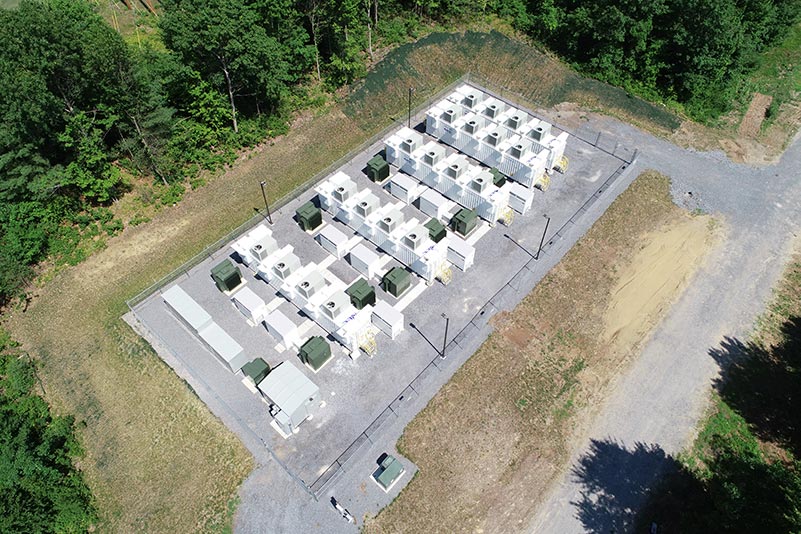
The Connecticut General Assembly is considering legislation – Senate Bill 952 – to ensure deployment of 1,000 megawatts of energy storage capacity by the end of 2030 – enough to power about 1 million homes.
To capture the benefits of energy storage and ensure Connecticut stays on track to meet its 2040 clean energy goals, we believe the pending bill should be modified to accelerate the deployment deadline and require all storage resources be competitively sourced.
Adding a significant amount of battery energy storage to the power grid can provide significant cost, reliability, and environmental benefits to the people of Connecticut. Stand-alone energy storage facilities provide new capacity to the grid and complement renewable energy resources by absorbing their excess low-cost energy and storing it for later use. While the bill allows for storage to pair with wind and solar resources, we believe that benefit should be expanded to include all forms of small hydropower.
Energy storage can provide substantial reliability benefits within dense population centers due to its relatively small footprint. It also provides on-demand electricity to the grid at peak times – something usually provided by fossil fuel generators. A stated goal of Connecticut’s 2021 draft Integrated Resources Plan is the replacement of old fossil peaking units, many of which are over 40 years old, and contribute the greatest amount of harmful air emissions. Connecticut also hosts 60 percent of the fleet of power plants, all of which are fossil fueled, needed to meet New England’s peak demands, despite having only 24 percent of region’s electricity consumption.
By accelerating the switch from fossil fuels to energy storage at peak times we can reduce emissions and improve the environment. Further, recent wholesale electricity auctions have shown that battery energy storage is among the least cost of new resource technologies – which is a win for consumers.
Given these overwhelming benefits, RENEW Northeast believes the current bill’s goal, which calls for 1000 megawatts of energy storage, should be accelerated from 2030 to 2025.
This bill should also limit the statutory change in 2019 that partially rolled-back the ban on utility-owned generation and allowed them to provide rate-based storage without requiring competitive solicitations. States like New York have determined energy storage resources are provided more cost-effectively by private developers on a competitive basis rather than by utilities through guaranteed rate-of-return regulation. Connecticut should follow suit and require that any utility ownership of energy storage should be limited to small distribution systems and a utility should have to demonstrate that alternatives from competitive developers are, in the words of the New York commission, “clearly inadequate or more costly than a traditional utility infrastructure alternative.”
The New York Public Service Commission recently concluded that “competitive ownership of energy storage assets . . . is a core principle and the existing limitations on utility ownership of energy storage should be maintained if possible.” A competitively developed project that is willing to cap the total cost exposure to consumers will ultimately be more beneficial to customers than a project that retains the ability to seek recovery of all costs, including any overruns, without limitation.
Connecticut’s long-standing pro-competition law enacted over twenty years ago was based on the principle that private investors have a greater incentive to lower costs than utilities under cost-of-service regulation and they and their shareholders and not consumers should bear the risks of generation ownership.
To ensure robust competition at the distribution level, the bill should require the removal of barriers to entry for competitively sourced distribution-interconnected energy storage investment including providing appropriate rates for front-of-the-meter, or large-scale, distribution-interconnected storage resources to charge at off-peak times.
Given the significant clean air and customer benefits offered by energy storage, RENEW Northeast urges the General Assembly to enact a strong energy storage law that will lead to a cleaner and more reliable electric system and that works in the best interest of consumers.
By: Francis Pullaro, Executive Director, RENEW Northeast
Original article published by CT Mirror.
